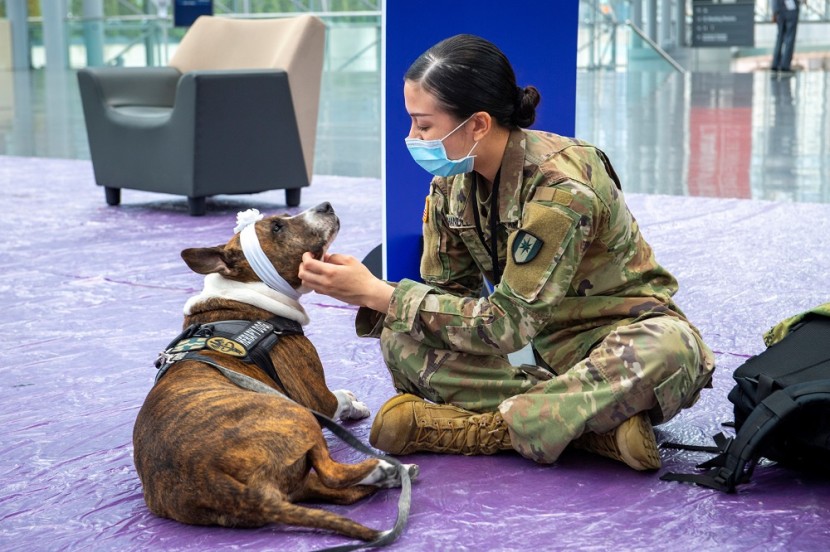
Researchers nowadays are making arduous efforts to discover methods to tackle COVID-19.
A team of researchers has provided a novel methodology to combat the coronavirus pandemic. A trial in Britain will test whether specialist medical sniffer dogs have the capacity to detect the novel coronavirus in humans is slated to begin.
The designated dogs have been previously trained to detect the smell of malaria, certain cancers, and Parkinson's disease by the charity Medical Detection Dogs.
The trial's first phase will be spearheaded by the London School of Hygiene & Tropical Medicine, alongside Medical Detection Dogs and Durham University.
The trial has been backed with £500,000 provided by the government.
The trials to be undertaken will form part of the research into possible non-invasive, early-warning methodology of detecting the coronavirus.
The first phase will determine whether the 6 dogs, a variety of labradors and cocker spaniels, have the potential to detect the coronavirus in humans from odor samples.
According to Minister for Innovation Lord Bethell, "Bio-detection dogs already detect specific cancers and we believe this innovation might provide speedy results as part of our wider testing strategy."
"Accuracy is essential so this trial will tell us whether 'COVID dogs' can reliably detect the virus and stop it spreading."
The trial is among numerous testing methods being explored in order to affirm that the government's response to the coronavirus is as large-scale as possible, stated the Department of Health.
The trial's initial phase will see National Health Service (NHS) staff members in London hospitals collecting odor samples from patients who contracted the coronavirus and those who are uninfected.
Each bio-detection dogs could screen a maximum of 250 people per hour.
Then, six bio-detection dogs will undergo training to detect the coronavirus from the samples.
Over 10 years of research compiled by the charity Medical Detection Dogs has revealed that the aforementioned dogs can be trained to sniff the odor of the disease at the equivalent solution of one teaspoon of sugar in 2 Olympic-sized swimming pools of water.
According to Professor James Logan, lead researcher for the work and Head of the Department of Disease Control at the London School of Hygiene and Tropical Medicine, "Our previous work has shown that malaria has a distinctive odor, and with Medical Detection Dogs, we successfully trained dogs to accurately detect malaria."
Claire Guest, Medical Detection Dogs co-founder and chief executive, remarked that she was "sure our dogs will be able to find the odor of COVID-19."
She added that if the trial reaps triumphant results, the dogs will then undergo the "second phase to test them in live situations, following which we hope to work with other agencies to train more dogs for deployment."
James Logan, from the London School of Hygiene and Tropical Medicine, said that their previous research study has proven that malaria has a distinctive odor.
Therefore, he added, "This, mixed with the information that respiratory illness can change physique odor, makes us hopeful that the dogs can additionally detect COVID-19."
Related Article : Governor Cuomo Talks Up New York's Decline in Hospitalizations








